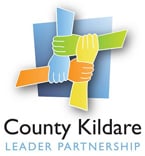What the changes announced to the Pandemic Unemployment Payment will mean for you
From Department of Social Protection
Published on
Last updated on
- 1. If you are getting the Pandemic Unemployment Payment at a rate of €203 per week
- 2. If you are getting the Pandemic Unemployment Payment at a rate of €250 per week
- 3. If you are getting the Pandemic Unemployment Payment at a rate of €300 per week
- 4. If you are getting the Pandemic Unemployment Payment at a rate of €350 per week
You will stay on the same rate of payment until 7 September.
After that date, you will transfer to the standard jobseekers’ terms. We will contact you before this happens to give you the opportunity to claim a standard jobseeker payment and have your claim assessed before you transition from the Pandemic Unemployment Payment.
You will stay on the same rate of payment until 7 September. Your rate of payment will change to €203 on 14 September.
You will transfer to the standard jobseekers’ terms from mid-November. You will be given an opportunity to claim a standard jobseeker payment and have your claim assessed before you transition from the Pandemic Unemployment Payment at that time. We will contact you before this happens to give you the opportunity to claim a standard jobseeker payment and have your claim assessed before you transition from the Pandemic Unemployment Payment.
You will stay on the same rate of payment until 7 September. Your rate of payment will change to €250 on 14 September and €203 in mid-November.
Once you reach the €203 rate in mid-November, you will transfer to the standard jobseekers’ terms. You will be given an opportunity to claim a standard jobseeker payment and have your claim assessed before you transition from the Pandemic Unemployment Payment at that time. We will contact you before this happens to give you the opportunity to claim a standard jobseeker payment and have your claim assessed before you transition from the Pandemic Unemployment Payment.
You will stay on the same rate of payment until 7 September. Your rate of payment will change to €300 on 14 September and €250 in mid-November. In early February 2022, your rate of payment will change to €203.
Once you reach the €203 rate in February 2022, you will transfer to the standard jobseekers’ terms. You will be given an opportunity to claim a standard jobseeker payment and have your claim assessed before you transition from the Pandemic Unemployment Payment.
We will contact you before this happens to give you the opportunity to claim a standard jobseeker payment and have your claim assessed before you transition from the Pandemic Unemployment Payment.
Pandemic Unemployment Payments will cease for full-time students with the start of the 2021/2022 academic year. The last payment to students will be 7 September 2021. This reflects the fact that, as colleges and universities reopen, students will no longer be available to take up full-time employment and would not under normal circumstances qualify for an unemployment payment while at college.
You will be contacted over the course of the summer where you will be asked if you still satisfy the conditions to get the Pandemic Unemployment Payment. You will have to confirm if you are, or intend to be registered as a full-time student with any school, university, college or other education/training provider for the academic year 2021/2022. The responses to this campaign will be used to identify your student status.
If you have lost your employment as a direct consequence of COVID-19 on or before 30 June, you can still apply for the Pandemic Unemployment Payment.
If you lose your job for reasons other than COVID-19, you can apply for Jobseeker’s Benefit or Jobseeker’s Allowance.
Applications for the Pandemic Unemployment Payment will no longer be accepted. If you lose your job for reasons other than COVID-19, you can apply for Jobseeker’s Benefit or Jobseeker’s Allowance.
The Supplementary Welfare Allowance scheme remains available to assist people who face particular financial difficulties. The scheme is administered by the Community Welfare Service of the department and can include once off payments to meet exceptional or urgent needs.

